Ravishment
of Reason
Transits: Literature, thought & culture 16501850
Series Editor
Greg Clingham
Bucknell University
Kate Parker
University of WisconsinLa Crosse
Transits is the next horizon. The series of books, essays, and monographs aims to extend recent achievements in eighteenth-century studies and to publish work on any aspects of the literature, thought, and culture of the years 16501850. Without ideological or methodological restrictions, Transits seeks to provide transformative readings of the literary, cultural, and historical interconnections between Britain, Europe, the Far East, Oceania, and the Americas in the long eighteenth century, and as they extend down to present time. In addition to literature and history, such global perspectives might entail considerations of time, space, nature, economics, politics, environment, and material culture, and might necessitate the development of new modes of critical imagination, which we welcome. But the series does not thereby repudiate the local and the national for original new work on particular writers and readers in particular places in time continues to be the bedrock of the discipline.
Selected titles in the Series
The Family, Marriage, and Radicalism in British Womens Novels of the 1790s: Public Affection and Private Affliction
Jennifer Golightly
Feminism and the Politics of Travel After the Enlightenment
Yal Schlick
John Galt: Observations and Conjectures on Literature, History, and Society
Regina Hewitt
Performing Authorship in Eighteenth-Century English Periodicals
Manushag N. Powell
Excitable Imaginations: Eroticism and Reading in Britain, 16601760
Kathleen Lubey
The French Revolution Debate and the British Novel, 17901814: The Struggle for Historys Authority
Morgan Rooney
Rococo Fiction in France, 16001715: Seditious Frivolity
Allison Stedman
Poetic Sisters: Early Eighteenth-Century Women Poets
Deborah Kennedy
Richard Brinsley Sheridan: The Impresario in Political and Cultural Context
Jack E. DeRochi and Daniel J. Ennis
Studies in Ephemera: Text and Image in Eighteenth-Century Print
Kevin Murphy and Sally ODriscoll
Developments in the Histories of Sexualities
Chris Mounsey
Enlightenment in Ruins: The Geographies of Oliver Goldsmith
Michael Griffin
Reading Christopher Smart in the Twenty-First Century: By Succession of Delight
Edited by Min Wild and Noel Chevalier
Wordsworth, Hemans, and Politics, 18001830: Romantic Crises
Benjamin Kim
Print Technology in Scotland and America, 17401800
Louis Kirk McAuley
The Idea of Disability in the Eighteenth Century
Chris Mounsey
Ravishment of Reason: Governance and the Heroic Idioms of the Late Stuart Stage, 16601690
Brandon Chua
For a complete list of titles in this series, please visit http://www.bucknell.edu/university press
Transits
Ravishment
of Reason
Governance and the Heroic Idioms of the Late Stuart Stage, 16601690
Brandon Chua
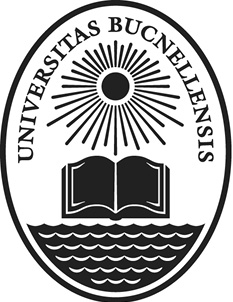
LEWISBURG
BUCKNELL UNIVERSITY PRESS
Published by Bucknell University Press
Copublished by The Rowman & Littlefield Publishing Group, Inc.
4501 Forbes Boulevard, Suite 200, Lanham, Maryland 20706
www.rowman.com
16 Carlisle Street, London W1D 3BT, United Kingdom
Copyright 2014 by Brandon Chua
All rights reserved. No part of this book may be reproduced in any form or by any electronic or mechanical means, including information storage and retrieval systems, without written permission from the publisher, except by a reviewer who may quote passages in a review.
British Library Cataloguing in Publication Information Available
Library of Congress Cataloging-in-Publication Data
Chua, Brandon, 1981- author.
Ravishment of Reason : Governance and the Heroic Idioms of the Late Stuart Stage, 1660-1690 / Brandon Chua.
pages cm. (Transits: Literature, Thought & Culture, 1650-1850)
Includes bibliographical references and index.
ISBN 978-1-61148-582-0 (cloth : alk. paper) ISBN 978-1-61148-583-7 (electronic) 1. English dramaRestoration, 1660-1700. 2. TheaterEnglandHistory. I. Title.
PR691.C48 2014
822'.409dc23
2014022373
 The paper used in this publication meets the minimum requirements of American National Standard for Information SciencesPermanence of Paper for Printed Library Materials, ANSI/NISO Z39.48-1992.
The paper used in this publication meets the minimum requirements of American National Standard for Information SciencesPermanence of Paper for Printed Library Materials, ANSI/NISO Z39.48-1992.
Printed in the United States of America
To Marion J. Campbell
Contents
Acknowledgments
I have incurred a great debt to the many people who have discussed and debated several of the issues covered in this book. This book grew out of doctoral work undertaken at the University of Melbourne, and the warm and collegial environment provided by staff and fellow students played a large role in sustaining my scholarly efforts. I owe special thanks to Marion J. Campbell, who introduced me to early modern literature, and whose intellect and patience were crucial in the shaping and clarification of my argument. Justin Clemens generously supported this project with his insightful and challenging commentaries on several drafts, and I am particularly grateful for his friendship and encouragement. This book has also benefited immensely from Deirdre Colemans careful and meticulous editing of several manuscript drafts, and her invaluable advice helped me see more clearly the kind of book I wanted to write. In the course of revising my PhD thesis into this book, I have been generously assisted by Steven Zwicker and Elliott Visconsi, who both provided careful readings and offered invaluable suggestions for redrafting the manuscript.
At the University of Queensland, I have had the benefit of a supportive research environment that allowed me to bring this book to completion. I would like to thank Peter Holbrook, Ross Knecht, Lisa OConnell, Simon During, Alison Scott, Diana Barnes, and Jennifer Clement for providing the collegial support and intellectual engagement so crucial for the final drafting phase. I was enabled to pursue research crucial for the final drafting of the manuscript by a fellowship from the Australian Research Councils Centre of Excellence for the History of Emotions, and I would like to acknowledge my colleagues at the Centre for their thoughtful conversations with me on the passions and early modern politics. The Centre has also provided me with several opportunities to present portions of this book and gain invaluable feedback, and I would like to thank Philippa Maddern and Stephanie Trigg for their invitations and intellectual support. I would also like to thank the following visiting scholars to the Centre, who offered encouragement and helpful pointers in the right direction: Conal Condren, Erin Sullivan, Will Sharpe, Laura J. Rosenthal, and Richard Strier. I would also like to thank Greg Clingham and the anonymous readers at Bucknell University Press for their careful and indispensable attention to this project, which eventually allowed me to get past the finishing line.
Several close friends and family members have also been burdened with this book and would be happy to learn of its completion. I am particularly beholden to Anna Cordner, Emma Fajgenbaum, Aaron Orzech, Lauren Bliss, Ruby Lowe, Tyne Daile, David Mcinnis, Johanna Simmons, Kate Derby, Matthew Guc, Thomas Crouch, Sam Baily, and Piero Damiani for their continued support and toleration of my writing ambitions. Finally, Id like to thank my familymy parents, James and Elizabeth, my brother, Christian, and sister, Ann Mariefor all their love and support.
Next page
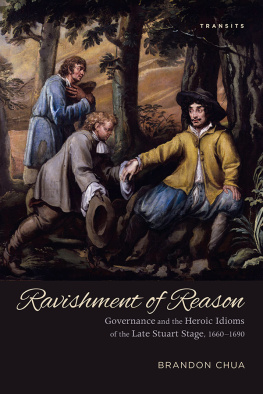


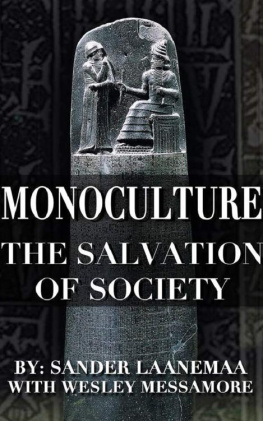
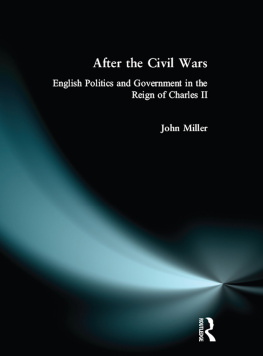
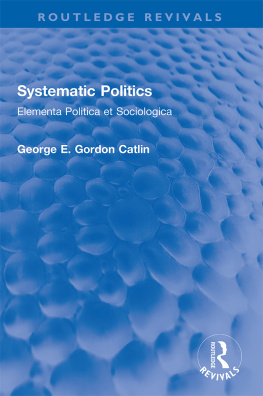
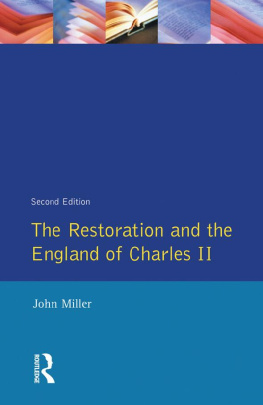
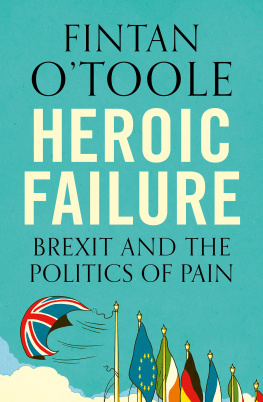
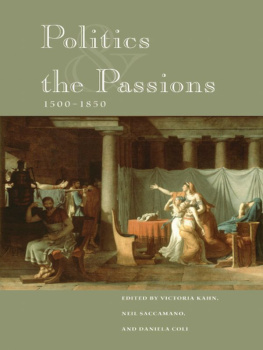
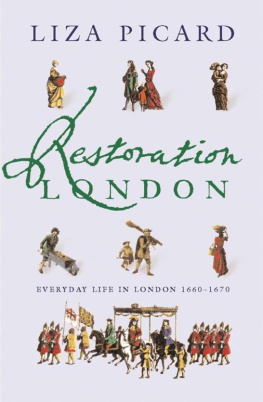

 The paper used in this publication meets the minimum requirements of American National Standard for Information SciencesPermanence of Paper for Printed Library Materials, ANSI/NISO Z39.48-1992.
The paper used in this publication meets the minimum requirements of American National Standard for Information SciencesPermanence of Paper for Printed Library Materials, ANSI/NISO Z39.48-1992.